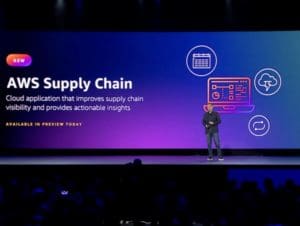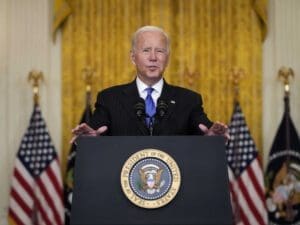 As we continue to move towards a sense of normalcy following nearly three years Covid-related disruptions, another yearly tradition is moving back to the old way. That’s right, when you visit Santa at certain malls or stores, there will no longer be plastic partitions or chairs set up six feet away from the jolly guy. Macy’s, however, will have Santa behind a desk at its flagship store in New York’s Herald Square. But, like most things, we’re dealing with another shortage. This time, it is a Santa shortage. Santa booker HireSanta.com has logged a 30 percent increase in demand this Christmas season over last year, after losing about 15 percent of its performers to retirement or death during the pandemic. Another large Santa agency, Cherry Hill Programs, is back up to pre-pandemic booking numbers for their 1,400 or so Santas working at more than 600 malls and other spots this year. While some Santas are returning after a multi-year hiatus, the demand this year is driving companies to recruit new Santas. And now on to this week’s logistics news.
As we continue to move towards a sense of normalcy following nearly three years Covid-related disruptions, another yearly tradition is moving back to the old way. That’s right, when you visit Santa at certain malls or stores, there will no longer be plastic partitions or chairs set up six feet away from the jolly guy. Macy’s, however, will have Santa behind a desk at its flagship store in New York’s Herald Square. But, like most things, we’re dealing with another shortage. This time, it is a Santa shortage. Santa booker HireSanta.com has logged a 30 percent increase in demand this Christmas season over last year, after losing about 15 percent of its performers to retirement or death during the pandemic. Another large Santa agency, Cherry Hill Programs, is back up to pre-pandemic booking numbers for their 1,400 or so Santas working at more than 600 malls and other spots this year. While some Santas are returning after a multi-year hiatus, the demand this year is driving companies to recruit new Santas. And now on to this week’s logistics news.
- Amazon in the news:
- IBM and Maersk abandon ship on TradeLens blockchain
- Biden asks Congress to avert rail strike
- Tech companies begin rerouting critical chip supplies to trucks
- FedEx Express Europe debuts renewable diesel in Netherlands
- Coke and Pepsi race toward sustainable delivery fleets
 Earlier this week, Amazon Web Services (AWS), the cloud computing arm of Amazon, launched a supply chain management application it said will eliminate the need for businesses to use multiple systems and vendors to access critical network data. The application, called AWS Supply Chain, was introduced at the AWS re:Invent conference in Las Vegas. According to AWS, the machine learning-powered application automatically combines and analyzes data across multiple supply chain systems, creating what it calls a “unified data lake.” The new application enables users to extract and aggregate data from multiple ERP and supply chain management systems, according to AWS. The application then maps the information, highlighting current inventory selection and quantity at each location, the Amazon unit said.
Earlier this week, Amazon Web Services (AWS), the cloud computing arm of Amazon, launched a supply chain management application it said will eliminate the need for businesses to use multiple systems and vendors to access critical network data. The application, called AWS Supply Chain, was introduced at the AWS re:Invent conference in Las Vegas. According to AWS, the machine learning-powered application automatically combines and analyzes data across multiple supply chain systems, creating what it calls a “unified data lake.” The new application enables users to extract and aggregate data from multiple ERP and supply chain management systems, according to AWS. The application then maps the information, highlighting current inventory selection and quantity at each location, the Amazon unit said.
Amazon will wind down parts of its Indian operations, showing that even the crucial growth market with 1.4 billion consumers isn’t immune to Chief Executive Officer Andy Jassy’s cost-reduction campaign. The company said it is exiting meal deliveries as well as a service providing bulk doorstep deliveries of packaged consumer goods to small businesses. The exits will involve layoffs of just several hundred out of a workforce of thousands, leaving Amazon relying on its core offerings such as online retail in the country, according to a person familiar with the matter. Jassy is reducing expenses and jobs around the world amid slowing growth in several areas of Amazon’s business. In India, the pullback underscores Amazon’s struggles in one of the world’s fastest growing e-commerce markets, where it’s facing regulatory heat and competition from homegrown conglomerates Reliance Industries Ltd. and Tata Group as well as Walmart Inc.’s Flipkart.
 Maersk and IBM will wind down their shipping blockchain TradeLens by early 2023, ending the pair’s five-year project to improve global trade by connecting supply chains on a permissioned blockchain. TradeLens emerged during the “enterprise blockchain” era of 2018 as a high-flying effort to make inter-corporate trade more efficient. Open to shipping and freight operators, its members could validate the transaction of goods as recorded on a transparent digital ledger. The idea was to save its member-shipping companies money by connecting their world. But the network was only as strong as its participants; despite some early wins, TradeLens ultimately failed to catch on with a critical mass of its target industry.
Maersk and IBM will wind down their shipping blockchain TradeLens by early 2023, ending the pair’s five-year project to improve global trade by connecting supply chains on a permissioned blockchain. TradeLens emerged during the “enterprise blockchain” era of 2018 as a high-flying effort to make inter-corporate trade more efficient. Open to shipping and freight operators, its members could validate the transaction of goods as recorded on a transparent digital ledger. The idea was to save its member-shipping companies money by connecting their world. But the network was only as strong as its participants; despite some early wins, TradeLens ultimately failed to catch on with a critical mass of its target industry.
 U.S. President Joe Biden on Monday called on Congress to intervene to avert a potential rail strike that could occur as early as December 9, warning of a catastrophic economic impact if railroad service ground to a halt. Biden asked lawmakers to adopt the tentative deal announced in September “without any modifications or delay – to avert a potentially crippling national rail shutdown” and added that up to 765,000 Americans “could be put out of work in the first two weeks alone.” House Speaker Nancy Pelosi said lawmakers would take up legislation this week “to prevent a catastrophic nationwide rail strike, which would grind our economy to a halt.” On Monday, more than 400 groups called on Congress to intervene in the railroad labor standoff that threatens to idle shipments of food and fuel and strand travelers while inflicting billions of dollars of economic damage.
U.S. President Joe Biden on Monday called on Congress to intervene to avert a potential rail strike that could occur as early as December 9, warning of a catastrophic economic impact if railroad service ground to a halt. Biden asked lawmakers to adopt the tentative deal announced in September “without any modifications or delay – to avert a potentially crippling national rail shutdown” and added that up to 765,000 Americans “could be put out of work in the first two weeks alone.” House Speaker Nancy Pelosi said lawmakers would take up legislation this week “to prevent a catastrophic nationwide rail strike, which would grind our economy to a halt.” On Monday, more than 400 groups called on Congress to intervene in the railroad labor standoff that threatens to idle shipments of food and fuel and strand travelers while inflicting billions of dollars of economic damage.
Speaking of the strike, technology companies supplying critical semiconductor chips to the economy have started shifting cargo shipments from railroads to trucks with a national freight rail strike looming. The moves are being made in an effort to avoid any pre-strike rail preparations that would force freight rail companies to prioritize cargo. The tech cargo being sent to trucks include semiconductor chips critical to the high-tech sector and auto industry. According to federal safety measures, railroad carriers begin prepping for a strike seven days before the strike date. The carriers start to prioritize the securing and movement of security-sensitive materials like chlorine for drinking water and hazardous materials in the rail winddown. Ninety-six hours before a strike date, chemicals are no longer transported. According to the American Chemistry Council, railroad industry data shows a drop of 1,975 carloads of chemical shipments during the week of September 10 when the railroads stopped accepting shipments due to the previous threat of a strike.
 In a “small-scale” experiment, FedEx Express Europe began using renewable diesel in part of its Netherlands-based linehaul truck fleet earlier this month, the company announced. Heavyweight, long-distance trucks are running on the fossil fuel alternative when they leave the recently reopened FedEx Express road hub in Duiven, Netherlands. The fuel is derived from organic matter or waste materials. The company plans to transition its parcel pick-up and delivery operation to a fully electric fleet by 2040. But decarbonizing heavyweight transportation is more challenging. The renewable diesel program is limited to the Netherlands, where it is encouraged on the continental routes, according to FedEx.
In a “small-scale” experiment, FedEx Express Europe began using renewable diesel in part of its Netherlands-based linehaul truck fleet earlier this month, the company announced. Heavyweight, long-distance trucks are running on the fossil fuel alternative when they leave the recently reopened FedEx Express road hub in Duiven, Netherlands. The fuel is derived from organic matter or waste materials. The company plans to transition its parcel pick-up and delivery operation to a fully electric fleet by 2040. But decarbonizing heavyweight transportation is more challenging. The renewable diesel program is limited to the Netherlands, where it is encouraged on the continental routes, according to FedEx.
A few days before Pepsi is set to receive its first Tesla electric semi trucks on December 1, Coca-Cola has exciting news of its own – the company has begun deliveries in its new electric truck fleet. After teasing Elon Musk and Tesla in early October, saying, “Some talk the talk. Some walk the walk,” on Twitter, Volvo-owned Renault Trucks announced Coca Cola has successfully implemented electric trucks for delivery. Coca-Cola Europacific Partners (CCEP) will be using 30 electric trucks for last-mile deliveries to local Belgium customers, with the first five rolling out last week. Through its partnership with Renault Trucks, CCEP looks to establish one of the largest EV delivery fleets in Belgium by converting one-fifth of its truck fleet to electric.
That’s all for this week. Enjoy the weekend and the song of the week, I Am Santa Claus by Bob Rivers.

















